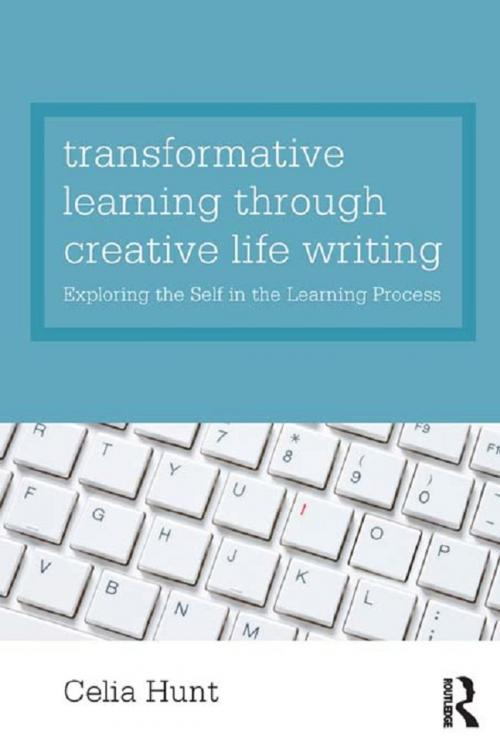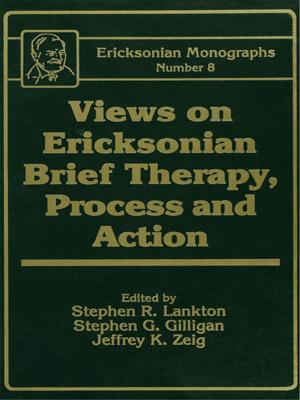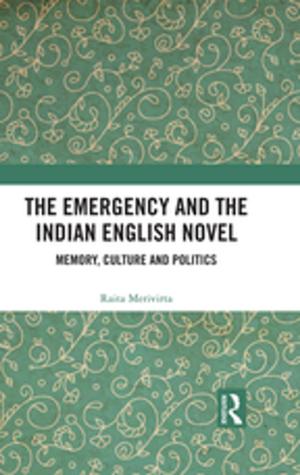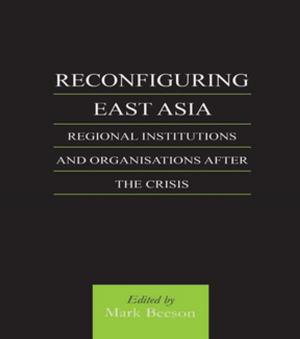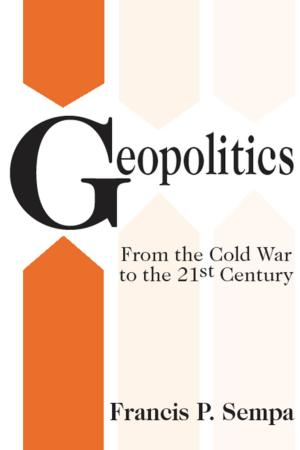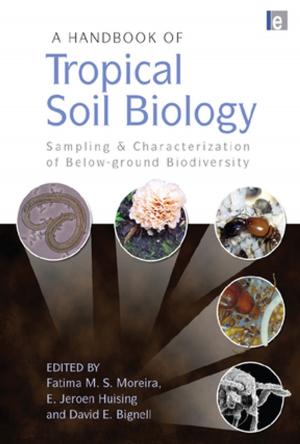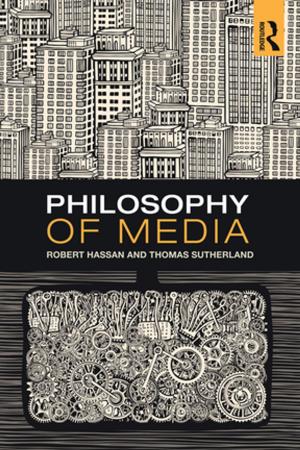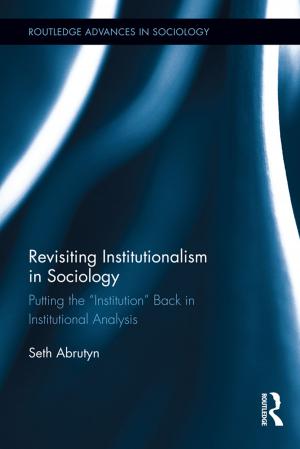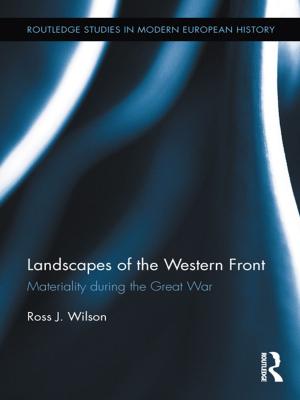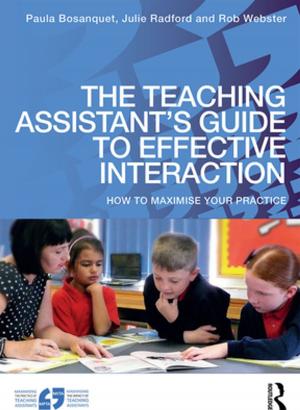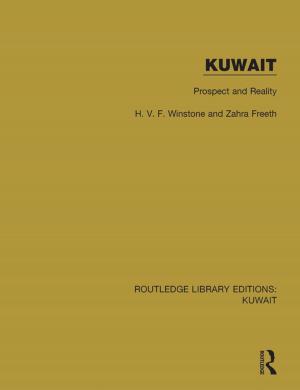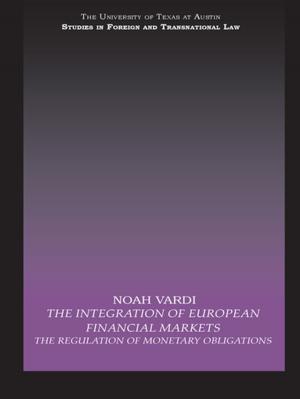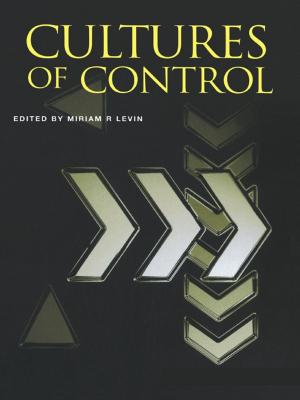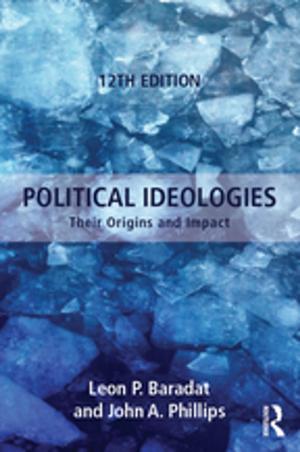Transformative Learning through Creative Life Writing
Exploring the self in the learning process
Nonfiction, Health & Well Being, Psychology, Creative Ability, Reference & Language, Education & Teaching, Educational Theory, Adult & Continuing Education| Author: | Celia Hunt | ISBN: | 9781136734021 |
| Publisher: | Taylor and Francis | Publication: | June 26, 2013 |
| Imprint: | Routledge | Language: | English |
| Author: | Celia Hunt |
| ISBN: | 9781136734021 |
| Publisher: | Taylor and Francis |
| Publication: | June 26, 2013 |
| Imprint: | Routledge |
| Language: | English |
Arising from a research project conducted over two years, Transformative Learning through Creative Life Writing examines the effects of fictional autobiography on adult learners’ sense of self. Starting from a teaching and learning perspective, Hunt draws together ideas from psychodynamic psychotherapy, literary and learning theory, and work in the cognitive and neurosciences of the self and consciousness, to argue that creative life writing undertaken in a supportive learning environment, alongside opportunities for critical reflection, has the power to transform the way people think and learn. It does this by opening them up to a more embodied self-experience, which increases their awareness of the source of their thinking in bodily feeling and enables them to develop a more reflexive approach to learning.
Hunt locates this work within recent developments in the influential field of transformative learning. She also identifies it as a form of therapeutic education arguing, contrary to those who say that this approach leads to a diminished sense of self, that it can help people to develop a stronger sense of agency, whether for writing or learning or relations with others. Topics covered include:
-
Creative writing as a tool for personal and professional development
The transformative benefits and challenges of creative writing as a therapeutic activity
The relationships between literary structures and the processes of thinking and feeling
The role of cognitive-emotional learning in adult education
Collaborative learning and the role of the group
This book will interest teachers in adult, further and higher education who wish to use creative life writing as a tool for learning, as well as health care professionals seeking art-based techniques for use in their practice. It will also prove useful to academics interested in the relationship between education and psychotherapy, and in the theory and practice of transformative learning. Additionally, it will appeal to writers seeking a deeper understanding of the creative process.
Arising from a research project conducted over two years, Transformative Learning through Creative Life Writing examines the effects of fictional autobiography on adult learners’ sense of self. Starting from a teaching and learning perspective, Hunt draws together ideas from psychodynamic psychotherapy, literary and learning theory, and work in the cognitive and neurosciences of the self and consciousness, to argue that creative life writing undertaken in a supportive learning environment, alongside opportunities for critical reflection, has the power to transform the way people think and learn. It does this by opening them up to a more embodied self-experience, which increases their awareness of the source of their thinking in bodily feeling and enables them to develop a more reflexive approach to learning.
Hunt locates this work within recent developments in the influential field of transformative learning. She also identifies it as a form of therapeutic education arguing, contrary to those who say that this approach leads to a diminished sense of self, that it can help people to develop a stronger sense of agency, whether for writing or learning or relations with others. Topics covered include:
-
Creative writing as a tool for personal and professional development
The transformative benefits and challenges of creative writing as a therapeutic activity
The relationships between literary structures and the processes of thinking and feeling
The role of cognitive-emotional learning in adult education
Collaborative learning and the role of the group
This book will interest teachers in adult, further and higher education who wish to use creative life writing as a tool for learning, as well as health care professionals seeking art-based techniques for use in their practice. It will also prove useful to academics interested in the relationship between education and psychotherapy, and in the theory and practice of transformative learning. Additionally, it will appeal to writers seeking a deeper understanding of the creative process.
